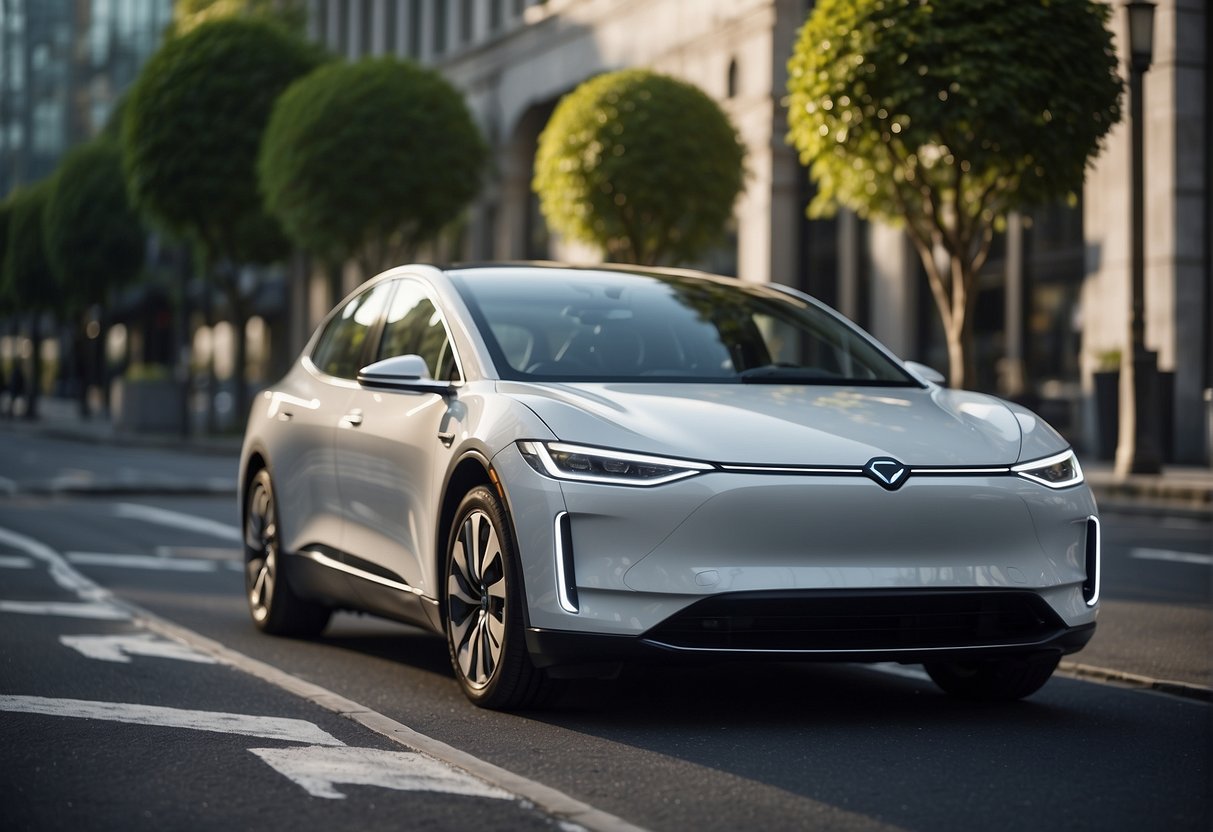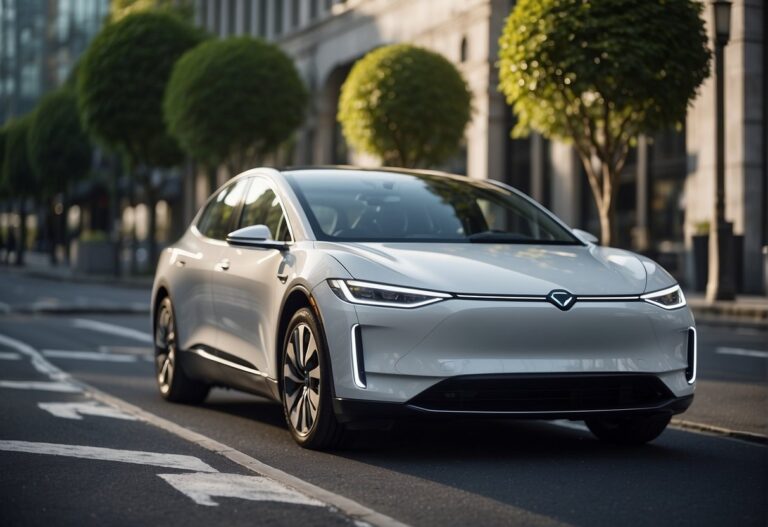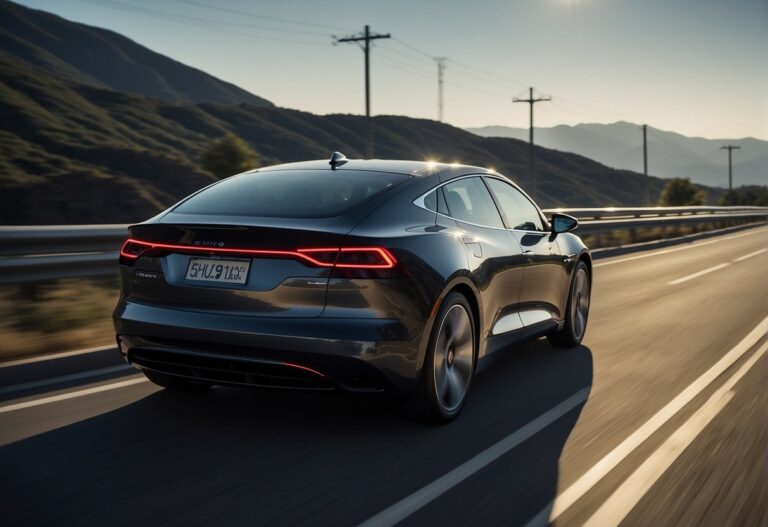Electric vehicles (EVs) are becoming increasingly popular due to their potential to reduce greenhouse gas emissions and mitigate climate change. However, the widespread adoption of EVs is still hindered by several factors, including range anxiety, charging infrastructure, and energy efficiency. To address these challenges, artificial intelligence (AI) is emerging as a promising solution for electric vehicle management.
AI can optimize electric vehicle charging schedules, enhance energy efficiency, and facilitate vehicle-to-grid (V2G) interactions. By using machine learning algorithms, EVs can learn from the driver’s behavior and adapt to their driving patterns, thus increasing the vehicle’s range and reducing energy consumption. Additionally, AI can predict battery capacity and charging time, enabling EVs to optimize the energy management system and charging systems, contributing to increasing the driving range of electric vehicles.
Moreover, AI can provide realistic driving-range estimations and optimize energy conservation, which can add extra driving range and reduce consumer range anxiety. Access to charging stations and the smart grid can significantly improve the consumer appeal of electric vehicles. Therefore, the role of AI in electric vehicle management is essential for sustainable development and the widespread adoption of electric vehicles.
Fundamentals of AI in EV Management
Electric vehicles (EVs) are becoming increasingly popular due to their lower environmental impact and the increasing availability of charging infrastructure. As the demand for EVs continues to grow, the need for efficient and effective management of these vehicles becomes more important. The use of artificial intelligence (AI) in EV management is one way to improve the efficiency and effectiveness of managing these vehicles.
Understanding Electric Vehicle Technology
To understand the role of AI in EV management, it is important to first understand the basics of electric vehicle technology. EVs are powered by electricity stored in a battery, which is charged by plugging the vehicle into a charging station. The battery management system (BMS) is responsible for managing the battery’s charge and discharge cycles to ensure the battery’s longevity.
AI and Machine Learning in EVs
AI and machine learning (ML) can be used in EVs to improve the efficiency and effectiveness of the vehicle’s operation. AI can be used to predict the range of the vehicle based on factors such as driving habits and weather conditions. ML algorithms can be used to optimize the energy consumption of the vehicle by adjusting the power output of the motor and other components.
Battery Management and Energy Systems
The BMS is a critical component of an EV, and AI can be used to improve its performance. AI algorithms can be used to predict the state of charge (SOC) and state of health (SOH) of the battery, allowing the BMS to optimize the battery’s performance and longevity. AI can also be used to optimize the energy management system of the vehicle, ensuring that the vehicle is using energy efficiently and effectively.
In summary, the use of AI in EV management has the potential to improve the efficiency and effectiveness of managing these vehicles. AI can be used to optimize the energy consumption of the vehicle, predict the range of the vehicle, and improve the performance of the battery management system. As the demand for EVs continues to grow, the use of AI in EV management will become increasingly important.
Integrating EVs with Smart Energy Grids
Electric vehicles (EVs) have become increasingly popular in recent years as a way to reduce greenhouse gas emissions and promote sustainable energy. However, integrating EVs with smart energy grids is essential to maximize their potential. Artificial intelligence (AI) plays a crucial role in this integration, as it can optimize energy consumption and reduce costs.
Vehicle-to-Grid (V2G) Systems
Vehicle-to-grid (V2G) systems allow EVs to feed energy back into the grid when they are not in use, reducing the demand for fossil fuels and promoting sustainable energy. AI can be used to optimize V2G systems, ensuring that EVs are charged and discharged at the most cost-effective times.
Smart Charging and Energy Consumption
Smart charging systems use AI to optimize the charging process, reducing energy consumption and costs. These systems can also help to balance the load on the grid by charging EVs during off-peak hours. Additionally, AI can be used to predict energy consumption patterns and adjust charging rates accordingly.
Sustainability and Environmental Impact
Integrating EVs with smart energy grids has significant sustainability and environmental benefits. By reducing the demand for fossil fuels, EVs can help to reduce greenhouse gas emissions and promote sustainable energy. Additionally, smart charging systems can help to reduce the strain on the grid and promote renewable energy sources.
Overall, integrating EVs with smart energy grids is essential to maximize their potential and promote sustainable energy. AI plays a crucial role in this integration, optimizing energy consumption and reducing costs. By promoting renewable energy sources and reducing greenhouse gas emissions, EVs can help to create a more sustainable future.



